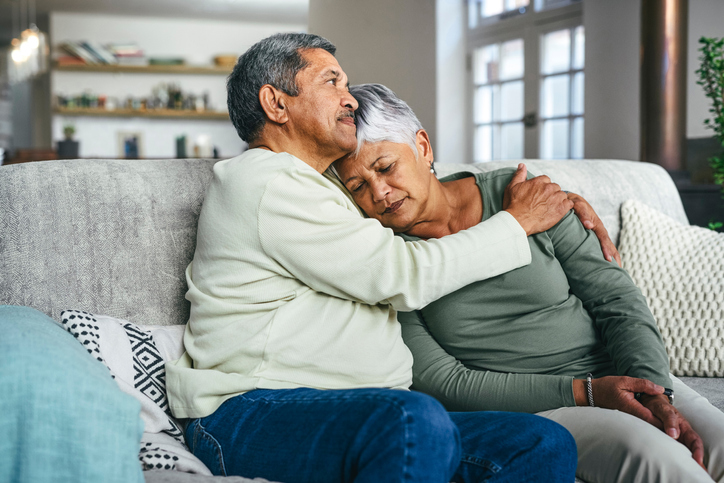The term “compassion fatigue” has traditionally been associated with healthcare professionals, particularly those who regularly work with patients who have experienced mental or physical trauma. Over time, caring for these patients can burden the caregiver, causing exhaustion, mood swings, and a sense of detachment, among many other possible physical and mental symptoms.
While compassion fatigue is a clear issue for professional caregivers, it can also occur at home, when you are the primary caregiver for a loved one who is incapacitated in one way or another. In this blog entry, we’ll look at what it’s like to care for a loved one who is suffering from addiction and how you can protect yourself from caring “too much.”
Caring for An Addicted Loved One
It’s often the partner or parent of someone with addiction who bears the brunt of the care for that person, especially if they share the home. The burden of the caregiver, in the case of addiction, is heavy. Emotionally, you may feel intense anxiety about your loved one’s health–and their life. You may do your best to help them function as normal, getting them off to work each day, helping them pay bills, doing all of the cleaning and meal planning and food preparation because they are too sick or hungover to do it themselves.
You try to make sure they eat, you take care of any children involved both to protect your loved one from the extra work and to protect the children from your loved one’s moods and addictive behaviors. You suffer from the financial burden their addiction inevitably causes and try to cut back on your own spending to make up for it.
In return, your loved one is unable to show you much kindness or respect in return. Instead, they might avoid you, lash out at you, lie to you, or try to manipulate you when they need something. Needless to say, your mental and physical health will suffer.
Symptoms of Compassion Fatigue
Over time (and perhaps quite quickly!), you will find yourself exhausted on all levels. While you may have begun this journey feeling worry and concern for your loved one, that anxiety may turn to resentment and a feeling of detachment. You may feel angry at your loved one and irritable with everyone around you. You may have a hard time caring anymore, and you may feel guilty about this. Other signs of compassion fatigue include:
- Difficulty sleeping
- Difficulty making decisions
- Depression
- Digestive issues
- Headaches
- Self-isolation
In some cases, you may be in danger of developing a substance use disorder yourself, if you turn to alcohol or drugs to escape from the daily stress of caring for your loved one.
Compassion Fatigue & Codependency
It can be very hard to stop overextending yourself to care for someone you love. As frustrating as the person might be for you, they are hurting and need your help, right?
Yes and no. Yes, they are hurting. Yes, they need help. But are your actions truly helping your loved one? When you overextend yourself for someone who is addicted, you are likely making the situation worse for yourself–and for them.
The help your loved one needs is not someone doing everything for them, following them around fixing their mistakes, protecting them from any consequences of their actions. This kind of behavior may feel like love but it’s actually a form of codependence: confusing need with love.
According to Dr. Renee Exelbert, as quoted in this article, “Codependency is a circular relationship in which one person needs the other person, who in turn, needs to be needed.” One person (you, the person with compassion fatigue) is the “giver,” while the other person (your addicted loved one) is the “taker.” Both of you rely on this relationship dynamic, confusing it with love.
The best way to help your loved one is to let them experience the consequences of their actions. Only then will they be motivated to seek treatment for their disease.
How to Turn Your Compassion Toward Yourself
Turning your compassion toward yourself will not only help you but also show your loved one that they need to start taking care of themselves. It can be hard to know how to start when you’ve spent so much of your time focusing on someone else, but there are several things you can try:
- Start meeting with a therapist. A therapist can help you understand how to handle the situation with your loved one and how to care for yourself.
- Attend a support group for family members of people with addiction. Al-Anon is a well-known option, but you might find others in your area or online as well.
- Focus on five main aspects of self-care: sleep, nutrition, physical activity, relaxation, and socializing.
- Set boundaries with your loved one. Tell them what you will and will not do for them. Carve out time and space for yourself each day.
- Give yourself 5-10 minutes each morning to check in with yourself, noting how you feel, what you’d like to prioritize that day, and reminding yourself of your boundaries.
If your loved one is ready to get treatment for their addiction, St. Gregory Recovery Center in Iowa is ready to help. Contact us to learn more about our admissions process and the various programs we have that can help your loved one take back control of their life.







